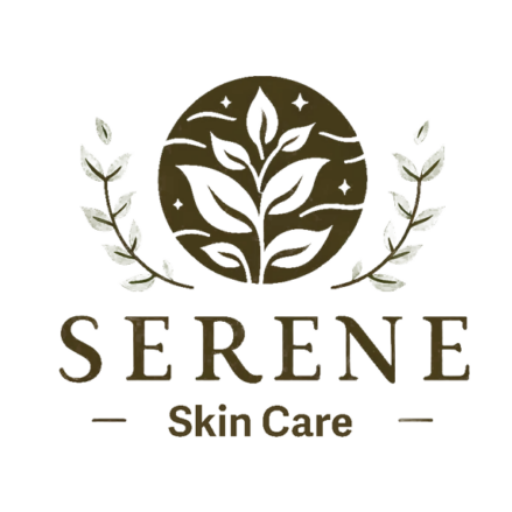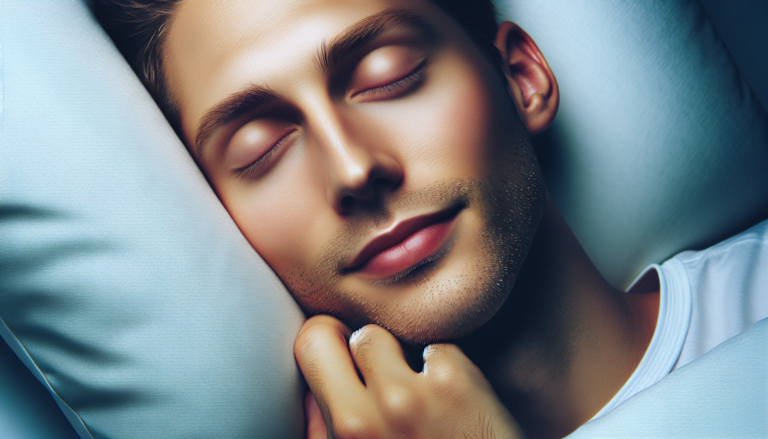Hormonal changes can wreak havoc on the skin, causing an array of frustrating issues such as acne, dryness, and sensitivity. In this article, the focus will be on exploring the impact of hormonal fluctuations on the skin and providing useful tips and tricks for managing these changes. From understanding how hormones affect the skin’s oil production to discovering effective skincare routines, readers will find valuable insights to help them navigate the often perplexing world of hormonal changes and maintain healthy, radiant skin.
Understanding Hormonal Changes
Hormonal changes are a natural and essential part of life, affecting individuals of all genders. These changes occur during various stages, including puberty, the menstrual cycle, pregnancy, and menopause. Understanding these hormonal fluctuations is crucial for maintaining healthy skin and overall well-being.
Puberty
Puberty is a transformative period that marks the onset of sexual maturity. During this time, hormonal changes, such as an increase in estrogen and testosterone levels, cause significant physical and emotional changes. While these changes are necessary for maturation, they can also have a profound impact on the skin.
Throughout puberty, the body’s oil glands become more active, leading to increased oil production. This can result in oily skin, clogged pores, and a higher likelihood of experiencing acne breakouts. Understanding and managing these changes is vital for maintaining skin health during this transitional phase.
Menstrual Cycle
The menstrual cycle is a monthly occurrence in individuals with female reproductive systems. It involves the release of hormones that trigger and regulate the menstrual cycle, preparing the body for potential pregnancy. These hormonal changes can also affect the skin in various ways.
Before and during menstruation, estrogen and progesterone levels fluctuate, which can lead to an increase in oil production. This hormonal imbalance can result in acne breakouts, especially around the chin and jawline. It is essential to adapt skincare routines and practices during this time to minimize the impact on the skin.
Pregnancy
Pregnancy is a miraculous journey that brings countless physical and emotional changes. Hormonal fluctuations play a significant role throughout this transformative period. The body undergoes dramatic changes, including increased blood flow, fluctuations in estrogen and progesterone levels, and the introduction of new hormones.
These hormonal changes can affect the skin in several ways. Some pregnant individuals may experience acne breakouts, hyperpigmentation (darkening of the skin), or dryness and sensitivity. While these changes are temporary, they can be managed with appropriate skincare practices and professional guidance.
Menopause
Menopause is a natural stage in a person’s life, marking the end of their reproductive years. It occurs when the ovaries gradually stop producing eggs and estrogen levels decline. This hormonal shift brings about significant changes throughout the body, including the skin.
During menopause, the skin may become thinner, drier, and more susceptible to wrinkles and sagging. Reduced collagen production can contribute to these visible signs of aging. Additionally, hormonal imbalances can lead to increased skin sensitivity and a higher likelihood of experiencing hot flashes.
Understanding the impact of hormonal changes during menopause is crucial for adapting skincare routines and seeking appropriate interventions to maintain healthy skin.
Effects of Hormonal Changes on the Skin
Understanding the effects of hormonal changes on the skin is essential for developing effective skincare practices. Hormonal fluctuations can lead to increased oil production, acne breakouts, hyperpigmentation, and dryness or sensitivity.
Increased Oil Production
Hormonal changes, such as those that occur during puberty and the menstrual cycle, can stimulate the sebaceous glands to produce more oil. This excess oil can contribute to the development of oily skin, clogged pores, and a higher likelihood of experiencing acne breakouts. Keeping the skin clean, hydrated, and balanced can help manage the effects of increased oil production.
Acne Breakouts
Hormonal imbalances can disrupt the natural balance of the skin, leading to increased sebum production. Excess sebum can mix with dead skin cells and clog pores, creating an ideal environment for acne-causing bacteria to thrive. Acne breakouts may occur during puberty, the menstrual cycle, pregnancy, and even during menopause. Proper skincare, including gentle cleansing and the use of non-comedogenic products, can help prevent and manage acne.
Hyperpigmentation
Hormonal fluctuations, particularly during pregnancy and the menstrual cycle, can contribute to hyperpigmentation. Dark patches or uneven skin tone may appear due to increased melanin production. Protecting the skin from excessive sun exposure and using skincare products with ingredients known to brighten and even out the complexion, such as vitamin C, can help reduce the appearance of hyperpigmentation.
Dryness and Sensitivity
During different stages of hormonal changes like menopause, the skin may become dry and more susceptible to sensitivity. This can result in redness, itchiness, and an overall uncomfortable sensation. Hydrating the skin with moisturizers specifically designed for dry or mature skin and avoiding harsh ingredients can help alleviate dryness and sensitivity.
Managing Hormonal Changes for Healthy Skin
While hormonal changes are a natural part of life, there are several strategies individuals can employ to manage their impact on the skin. By maintaining a consistent skincare routine, balancing hormonal levels, protecting the skin from environmental factors, and following a healthy diet, individuals can support the health and vitality of their skin.
Maintaining a Consistent Skincare Routine
Establishing a consistent skincare routine is essential for managing hormonal changes. This includes cleansing the skin twice a day using a gentle cleanser, followed by the application of toner, serums, moisturizer, and sunscreen. Regular exfoliation can also help remove dead skin cells and unclog pores. Additionally, incorporating targeted treatments, such as retinol or hyaluronic acid, can address specific skin concerns.
Balancing Hormonal Levels
Maintaining hormonal balance is crucial for healthy skin. This can be achieved through various lifestyle modifications, such as reducing stress, getting regular exercise, and ensuring adequate sleep. Additionally, individuals experiencing severe hormonal imbalances may seek medical assistance to explore hormone replacement therapies or other interventions.
Protecting the Skin from Environmental Factors
Environmental factors, such as sun exposure and pollution, can exacerbate the effects of hormonal changes on the skin. Protecting the skin from harmful UV rays by using broad-spectrum sunscreen and wearing protective clothing is crucial. Additionally, minimizing exposure to pollution and harsh chemicals can help maintain skin health.
Diet and Nutrition
Maintaining a healthy diet is vital for overall well-being, including the health of the skin. Eating a balanced diet rich in fruits, vegetables, whole grains, and lean proteins provides essential nutrients that support skin health. Consuming omega-3 fatty acids found in fish, flaxseeds, and walnuts can help reduce inflammation and promote skin hydration.
Choosing the Right Skincare Products
Selecting the right skincare products is essential for effectively managing hormonal changes and addressing specific skin concerns. Considering the skin type, understanding ingredient labels, and seeking professional advice can help individuals make informed choices.
Identifying the Skin Type
Understanding the skin type is crucial for selecting appropriate skincare products. The four main skin types are oily, dry, combination, and sensitive. Oily skin types should opt for oil-free or non-comedogenic products, while dry skin types may benefit from heavier moisturizers. Combination skin types may require a combination of products for different areas of the face, and sensitive skin types should choose gentle, fragrance-free formulations.
Understanding Ingredient Labels
Ingredient labels provide valuable information about the composition of skincare products. Familiarizing oneself with common skincare ingredients can help individuals make informed choices. Ingredients such as salicylic acid or benzoyl peroxide can be beneficial for acne-prone skin, while hyaluronic acid or glycerin can provide hydration for dry skin. Avoiding potential irritants or allergens, such as fragrances or sulfates, is important for sensitive skin.
Seeking Professional Advice
For individuals who are unsure about their skin type or have specific concerns related to hormonal changes, seeking professional advice is recommended. Dermatologists can provide personalized recommendations based on an individual’s skin needs. They can also suggest medical interventions or prescribe topical or oral medications to address specific skin concerns.
Addressing Specific Skin Concerns
Hormonal changes can give rise to various skin concerns, including acne-prone skin, hyperpigmentation, sensitivity and dryness, and premature aging. Understanding these concerns and implementing targeted skincare practices can help manage and improve the appearance of the skin.
Acne-Prone Skin
Individuals with acne-prone skin may need to incorporate specialized products into their skincare routine. Ingredients like salicylic acid and benzoyl peroxide can help unclog pores and reduce acne-causing bacteria. Regular exfoliation and spot treatments can also be beneficial. However, it is important to use these products in moderation and avoid over-drying the skin.
Hyperpigmentation
Hyperpigmentation, often caused by hormonal changes, can be distressing for many individuals. Using skincare products with ingredients like vitamin C, niacinamide, or kojic acid can help lighten dark spots and even out the skin tone. Consistent and regulated use of these products, along with sun protection, can yield noticeable improvements over time.
Sensitivity and Dryness
Individuals experiencing sensitivity and dryness can benefit from using skincare products specifically formulated for these concerns. Gentle cleansers, moisturizers, and soothing ingredients like aloe vera or chamomile can help calm irritated skin and provide much-needed hydration. Avoiding harsh cleansers or exfoliants can prevent further irritation.
Premature Aging
Hormonal changes, especially during menopause, can contribute to premature aging. To combat the appearance of wrinkles, fine lines, and sagging, individuals can incorporate anti-aging skincare products into their routine. Ingredients like retinol, peptides, and antioxidants can help boost collagen production, improve skin elasticity, and reduce the signs of aging.
Natural Remedies for Hormonal Skin Issues
In addition to traditional skincare options, individuals experiencing hormonal skin issues may explore natural remedies. While these remedies may not work for everyone, some individuals find relief with natural ingredients.
Tea Tree Oil
Tea tree oil has antimicrobial properties and can help reduce inflammation and kill acne-causing bacteria. Diluting tea tree oil with a carrier oil, such as jojoba or coconut oil, and applying it to affected areas can help manage acne breakouts without the use of harsh chemicals.
Aloe Vera
Aloe vera has soothing and healing properties, making it beneficial for addressing irritation, redness, and dryness. Applying fresh aloe vera gel or using skincare products containing aloe vera on sensitive or dry patches of skin can provide relief and hydration.
Turmeric
Turmeric contains curcumin, a compound known for its anti-inflammatory and antioxidant properties. Incorporating turmeric into skincare routines, either in DIY masks or through skincare products, can help reduce inflammation, even out skin tone, and promote healthy skin.
Essential Oils
Certain essential oils, such as lavender, chamomile, or rosehip oil, can have calming and regenerative effects on the skin. Diluting these essential oils with a carrier oil and applying them topically or incorporating them into skincare products can provide additional benefits and promote skin health.
Seeking Medical Intervention
While many individuals can manage hormonal changes and related skin concerns with lifestyle modifications and over-the-counter skincare products, some may require medical intervention. Consulting with healthcare professionals, such as dermatologists, gynecologists, or endocrinologists, can help individuals explore further treatment options.
Prescription Medications
In cases where hormonal acne or other skin concerns are severe or resistant, dermatologists may prescribe medications. These can include topical or oral medications like retinoids, antibiotics, or hormonal therapies to regulate hormone levels and manage specific skin concerns.
Hormonal Therapy
For individuals experiencing significant hormonal imbalances, hormonal therapy may be recommended. This can involve the use of hormone replacement therapies or oral contraceptives to regulate hormone levels and address related skin issues. These treatments should be discussed and prescribed by a healthcare professional.
Cosmetic Procedures
In some cases, cosmetic procedures may be recommended to address hormonal skin concerns. Procedures like chemical peels, microdermabrasion, or laser therapy can help improve overall skin texture, reduce hyperpigmentation, and rejuvenate the skin. These procedures should only be performed by qualified professionals and under the guidance of a healthcare provider.
Self-Care Practices for Hormonal Balance
Maintaining hormonal balance is vital for overall well-being and skin health. While external factors like skincare routines and medical interventions play a role, individuals can also support hormonal balance through self-care practices.
Regular Exercise
Engaging in regular physical activity can help balance hormone levels and reduce stress. Exercise promotes the release of endorphins, which can improve mood and overall well-being. It is important to find an exercise routine that is enjoyable and sustainable, whether it be dancing, swimming, yoga, or any other form of physical activity.
Stress Management
Chronic stress can disrupt hormone levels and negatively impact skin health. Incorporating stress management techniques into daily life, such as meditation, deep breathing exercises, or engaging in hobbies, can help reduce stress levels and support hormonal balance.
Adequate Sleep
Getting enough high-quality sleep is important for hormonal regulation and overall well-being. Lack of sleep can disrupt hormone levels and increase stress, impacting skin health. Establishing a consistent sleep routine and creating a relaxing environment can promote better sleep.
Healthy Lifestyle Habits
Maintaining a healthy lifestyle is crucial for hormonal balance. This includes avoiding tobacco and minimizing alcohol consumption, as they can disrupt hormone levels and have detrimental effects on the skin. Eating a balanced diet, staying hydrated, and avoiding excessive caffeine intake can also contribute to overall hormonal balance and skin health.
Seeking Professional Help
While self-care practices and over-the-counter skincare products can be effective for managing hormonal changes, seeking professional help when needed is important. Healthcare professionals specializing in dermatology, gynecology, or endocrinology can provide personalized advice and interventions based on individual needs.
Dermatologist
Dermatologists are medical professionals specializing in the diagnosis and treatment of skin conditions. They can provide expert advice on skincare routines, recommend appropriate products, and offer medical interventions when necessary. Regular visits to a dermatologist can ensure optimal skin health and address any concerns related to hormonal changes.
Gynecologist
Gynecologists specialize in women’s reproductive health, including the management of hormonal changes. They can provide guidance and interventions related to the menstrual cycle, pregnancy, and menopause. Gynecologists can address specific concerns related to hormonal imbalances and their impact on the skin.
Endocrinologist
Endocrinologists are healthcare professionals specializing in hormonal disorders and imbalances. They can assess and diagnose hormonal conditions, provide appropriate treatments or refer individuals to relevant specialists. Consulting an endocrinologist can be beneficial for individuals experiencing significant hormonal imbalances and related skin concerns.
Conclusion
Navigating hormonal changes and maintaining healthy skin require comprehensive understanding and proactive measures. By understanding the effects of hormonal changes, individuals can adapt their skincare routines and seek appropriate interventions. Choosing the right skincare products, addressing specific skin concerns, exploring natural remedies, and seeking professional help when necessary are all essential steps in maintaining the health and vitality of the skin. By incorporating self-care practices that support hormonal balance, individuals can further enhance their overall well-being and promote radiant, healthy skin throughout all stages of life.




